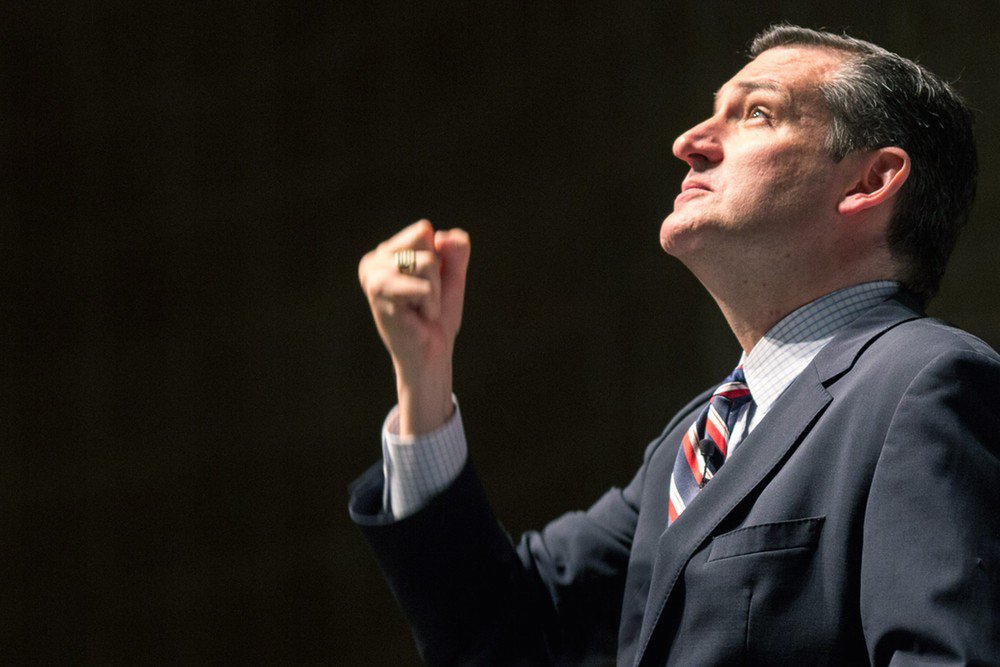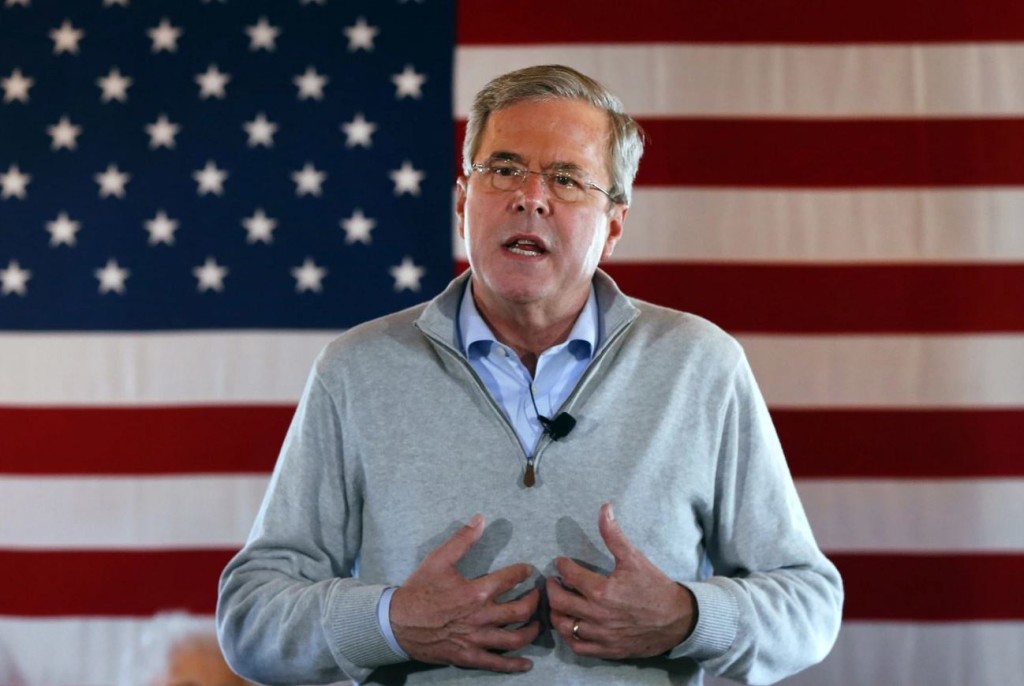Turnout is name of the game in Monday’s Iowa caucuses

In a final frenzy to inspire supporters to turn out for Monday’s Iowa caucuses, the presidential contenders scrambled to close the deal with the first voters to have a say in the 2016 race for the White House. The result Sunday was a blur of sometimes conflicting messages. Even as the candidates begged backers to caucus, many hopefuls also tried to lower expectations and look ahead to the New Hampshire primary on Feb. 9 and later contests. Republican Donald Trump, who has a slight edge over Ted Cruz in Iowa, predicted that “many” senators “soon” would endorse him rather than their Texas colleague. Trump didn’t name any such senators, and none immediately emerged. Democratic Hillary Clinton, in a tight race with Vermont Sen. Bernie Sanders, suggested that political point-scoring helped explain the hubbub over the State Department’s announcement Friday that it was withholding some emails on the home server she used while secretary of state. One development — the weather — was beyond the candidates’ control. A snowfall forecast to start Monday night appeared more likely to hinder the hopefuls in their rush out of Iowa than the voters. Republican John Kasich already has decamped to New Hampshire. Iowa offers only a small contingent of the delegates who will determine the nominees, but the game of expectations counts for far more than the electoral math in the state. Campaigns worked aggressively to set those expectations in their favor (read: lower them) for Iowa, New Hampshire and beyond. Meantime, a pastor at a church outside Des Moines urged politicians to treat their opponents with love and not attack ads. With Cruz and his family in the audience, pastor Mike Housholder of Lutheran Church of Hope played two parody attack ads questioning the faith of church members. There is a better way, he said — by speaking the truth with love. He says if you can’t do that, don’t speak. Too late: The candidates were all over the airwaves Sunday, talking about each other in distinctly unloving ways. Trump, for example, called Cruz a liar at least three times on ABC’s “This Week” for having said in a Des Moines Register ad that Trump supports President Barack Obama‘s signature health care law. Trump says he wants people’s health care “taken care of” but not with the current program. He did not say how he’d pay for such coverage. The candidates’ agreed on one thing: It’s all about turnout now. “People are really enthusiastic, and if people come out to vote, I think you’re going to look at one of the biggest political upsets in the modern history of our country,” Sanders told CNN’s “State of the Union.” Clinton said she had been subjected to “years of scrutiny, and I’m still standing.” On ABC’s “This Week,” she said, “I feel vetted. I feel ready. I feel strong, and I think I’m the best person to be the nominee and to defeat whoever they nominate in November.” Trump said “I don’t have to win” in Iowa, before adding that he believes he has “a good chance” of a caucus victory. He said he was confident of taking New Hampshire and many other contests down the road. “One of the reasons that I’ll win and, I think, none of the other guys will win is because I’m going to get states that they’ll never get,” he told CBS’ “Face the Nation,” citing Pennsylvania, Ohio, Michigan, Florida, along with strong hopes for New York and Virginia. Cruz is conceding nothing. “What we’re seeing is the old Reagan coalition coming together. We’re seeing conservatives and evangelicals and libertarians and Reagan Democrats. And if conservatives come out, we’re going to win tomorrow,” the Texas senator told “Fox News Sunday.” Cruz directed much of his final advertising against Marco Rubio as the senators’ feud grew even more bitter in the final day. Cruz took to the airwaves to challenge the conservative credentials of Rubio, the Floridian running third in Iowa, according to the polls. One ad said of Rubio: “Tax hikes. Amnesty. The Republican Obama.” Rubio shot back, telling CNN that as voters learn more about Cruz’s record, they will understand that “he’s always looking to take whatever position it takes to win votes or raise money.” Rubio said Republicans won’t beat Clinton “with someone that will say or do anything to get elected.” In the last major preference poll before the caucuses, Trump had the support of 28 percent of likely Republican caucus-goers, with Cruz at 23 percent and Rubio at 15 percent. The Iowa Poll, published by The Des Moines Register and Bloomberg, also found Clinton with 45 percent support to Sanders’ 42 percent in the Democratic race. The poll was taken from Tuesday to Friday and has a margin of error of plus or minus 4 percentage points. Republished with permission of the Associated Press.
Cash flow could be issue for 4 GOP contenders seeking boost

Money may be growing tight for four Republican presidential hopefuls clustered under Donald Trump and Ted Cruz — just when they’re about to need it the most. Financial reports coming out Sunday will show who began the year with enough cash to put their long-range campaign plans into motion. For Chris Christie, Jeb Bush and John Kasich, the aim is a strong showing in New Hampshire on Feb. 9 that power-boosts them deep into primary season. Marco Rubio‘s imperative is to do well enough in the first four states to vote that he can make a sustained climb in the weeks that follow. That sort of long slog would be costly because it involves travel around the two dozen states that hold contests on or before March 15. And some of those states, including Virginia, Florida and Ohio, have expensive advertising markets. “If you’re going to proceed after New Hampshire, you’re absolutely going to need considerable funds,” said Fred Malek, who has helped four decades of Republican presidential candidates raise money. “The pace of the primaries builds up rapidly. It’s far better to already have the cash on hand rather than have to ramp up.” The financial health of the campaigns of Christie, Kasich, Bush and Rubio is critically important because they’re competing not only with each other, but with Trump, a billionaire who has vowed to spend whatever it takes to win, and Cruz, who began the year with $19 million in the bank — an amount that probably exceeds most of his rivals. The foursome is considered to be competing for mainstream Republicans in a campaign that has seen Trump and Cruz most effectively tap populist anger and disdain for the establishment. In addition to the candidates, the outside political groups known as super PACs helping them must turn in progress reports on their fundraising and spending Sunday. Stanley Hubbard, a billionaire Minnesota broadcast executive, said he’s poised to write a large check to a super PAC backing any one of his preferred candidates, Rubio, Christie and Bush, among others. “If we get someone who really has a chance of doing something, I’m ready,” he said. “Someone just needs to rise to the top.” Asked if he is confident anyone will have enough money to compete with Trump or Cruz, he said: “No, I do not feel confident. But I’m hopeful.” There are signs that Rubio, a Florida senator, could be facing a cash crisis. After his campaign began leasing corporate jets and hiring dozens of additional employees at the end of the year, it recently downsized its advertising plans in Iowa, New Hampshire and South Carolina, according to advertising tracker Kantar Media’s CMAG. His campaign said it would air a 30-minute Rubio town hall over the weekend on several Iowa TV stations. Federal broadcast filings show that sets him back at least $12,000. On Friday, Rubio acknowledged the obvious, telling reporters he’s not going to be the candidate with the most campaign cash. He also said he believes his campaign has spent money wisely, building up staffing slowly and trimming the ad buy to save money. For Bush, the budget crunch arrived in October, when a fundraising shortfall — combined with the realization that the primary could last well into 2016 — prompted him to narrow what had been a large national campaign to focus squarely on New Hampshire. “It’s super hard to raise money,” said Anthony Scaramucci, a New York-based top fundraiser for Bush. “We’ve knuckled down to the new reality.” But he said the Bush finance team is working furiously and “generating cash every day for the campaign.” Judging by their ad buys, Christie and Kasich haven’t been reaping much contributor cash, either. Even as they barnstorm New Hampshire, they’ve each spent only about $500,000 on commercials there, CMAG shows. That’s less than retired neurosurgeon Ben Carson, who has paid little mind to New Hampshire. Christie campaign strategist Mike DuHaime said he expects “a new influx” of cash if Christie performs well in New Hampshire and at least some of his competitors drop out. But under several scenarios, all four candidates could think they’ve done well enough to continue on. Come Sunday, fundraising reports answer the question which of the four is best financially prepared to do so. As of Sept. 30, the last time the campaigns had to report, Christie had collected $4.2 million for the year, Kasich $4.4 million, Rubio $15.5 million and Bush $24.8 million. Previous filings also hinted at a fundraising challenge facing them: They’re struggling to connect with low-dollar donors who can give again and again, replenishing campaign treasuries if the candidates survive deep into the primaries. For Christie, Bush and Kasich, people giving $200 or less were barely a blip in their fundraising totals. About 20 percent of Rubio’s operation is supported that way, compared with 42 percent of Cruz’s. That could be why all four lean heavily on super PACs to communicate with voters through paid media. While campaigns can raise no more than $2,700 from each donor for the primaries, super PACs can — and do — take million-dollar checks. These outside groups have accounted for almost 90 percent of the $129 million in radio and television ads aired by the four establishment Republicans, according to CMAG. But super PACs can only do so much, as Scott Walker and Rick Perry can attest. Both had well-funded outside efforts in their corner, but folded up their presidential bids when their campaigns couldn’t raise enough money to keep going. Republished with permission of the Associated Press.
A roundup of Sunday editorials from Alabama’s leading newspapers

A roundup of Sunday editorials from Alabama’s leading newspapers: Anniston Star – Star’s front-page editorials over the years carry a similar theme The Star’s Sunday front page offered an editorial that encouraged Anniston residents to begin thinking about the 2016 election for city school board. Election day is Aug. 23. “Now — about seven months before Election Day — is the time to begin thinking about the priorities for the next Anniston city school board and who should serve on it,” the editorial began. “The upcoming four years are some of the most challenging Anniston’s schools will face in their history.” On Aug. 21, 2014, we offered a similar front-page editorial encouragement ahead of the 2016 school board election. “Anniston’s future, as well as the future of its students, depends on quality public schools that produce an attractive workforce and lure businesses to the city,” it read. The point is that the people best positioned to create change in our community are those who call it home. In a busy election year where the race for president will draw more attention than it deserves, it falls to this newspaper to shine a light on an election that will set the course for public schooling in our region. Birmingham News – What exactly is a pro-life Democrat? Recently, I offered a harsh critique of GOP leadership in Alabama and made a plea to the Alabama Democratic Party to open their doors and acknowledge the pro-life movement. The comments were none too pleasant, to say the least. And though I didn’t anticipate an outpouring of support, I did see a significant lack of understanding about what constitutes a “Pro-Life Democrat”. So let me explain. First and foremost, though we don’t hold the majority, we are actually significant in number. In a 2011 Gallup poll, 31% of people surveyed identified as both pro-life and Democrat. Secondly, though many make the opposite assumption, we differ significantly from our GOP counterparts. As pro-life Democrats, we are governed by the Whole Life Ethic, which states that human life, at every stage, is precious and sacred and worthy of protection and sustainment. So while we are actively anti-abortion, we are also fervently opposed to anything that does not sustain life. Decatur Daily – Lawmakers can heal an unhealthy state Interstate signs welcoming people to Alabama should have a warning attached: “Living in Alabama can be hazardous to your health.” The residents of only two states, Mississippi and West Virginia, have lower life expectancies than in Alabama. Stated differently, the average Alabamian, with a life expectancy of 75.4, is deprived of more than three years of life compared to the U.S. average. The average black Alabamian lives to 72.9, almost six fewer years than the national average. Black Alabamians have a life expectancy about the same as that in Cambodia, and shorter than the life expectancy in Iran. And it’s no wonder. According to the Alabama Department of Public Health, 35 of 55 rural Alabama counties lack labor and delivery services, and eight do not have hospitals. In the rural counties that do have hospitals, there are roughly 25 beds for every 10,000 residents, compared to 45 beds per 10,000 residents in urban communities. Getting sick or having an accident in rural Alabama can be a death sentence. Alabama’s infant mortality rate is 8.7 per 1,000 live births, worse than every state but Mississippi. Alabama’s infant mortality rate almost is twice that of most developed nations with universal healthcare. The infant mortality for black Alabamians is 14.6 per 1,000 live births, about the same as Syria and Colombia. About 11 percent of Alabamians have diabetes, second only to Mississippi. Dothan Eagle – A new approach to teaching in Webb Administrators and teachers at Webb Elementary School have made some changes in how students are taught in the county school east of Dothan. And in a time when many schools are struggling to meet the academic needs of students, the youngsters at Webb Elementary seem to be thriving under the changes. School officials report gains in student achievement and better performance on standardized tests. Recently, Webb Elementary was named as a CLAS Banner School in recognition of its academic performance – one of only 14 chosen from among 178 Alabama schools. The changes include a move to standards-based curriculum, establishing specific teachers for reading and math, and using tutors, all of which helps identify students who are having trouble before further academic difficulties take hold. While there is plenty of controversy in education circles surrounding the differences between curriculum-based instruction and standards-based instruction – and who sets those standards – there’s little doubt that the changes set in place at Webb Elementary have produced positive results. Enterprise Ledger – Shall I point out towns where gripes are merited? I know it’s the nature of the beast. Being a politician sprouts gripes from the public regardless of whether it’s justified or not. Depending on what biased cable channel you choose, Barack Obama is either a villain or a hero, Hillary Clinton is either a pathological liar or just being picked on because she’s a woman (hello, Mrs. Palin), and Donald Trump is either a nut or a…, well, from Fox News to the Peacock network, most agree he’s a nut, even those who would rather he be moving to the Oval Office next year. In Alabama, there are actually those that still support Speaker of the House Mike Hubbard, despite evidence that shows he has used, or at least tried to use his position for personal gain. He has more ethics violations charges than you can count using all of your fingers and toes. People’s pride in refusing to admit they’ve been a sucker for believing in a political misfit is tough, and until that situation is resolved, Alabama and its Republican Party will continue to suffer. But I digress… TimesDaily – For leaders, we need pragmatists, not ideologues It would be convenient if all of our problems could be solved by a single ideology. On the


